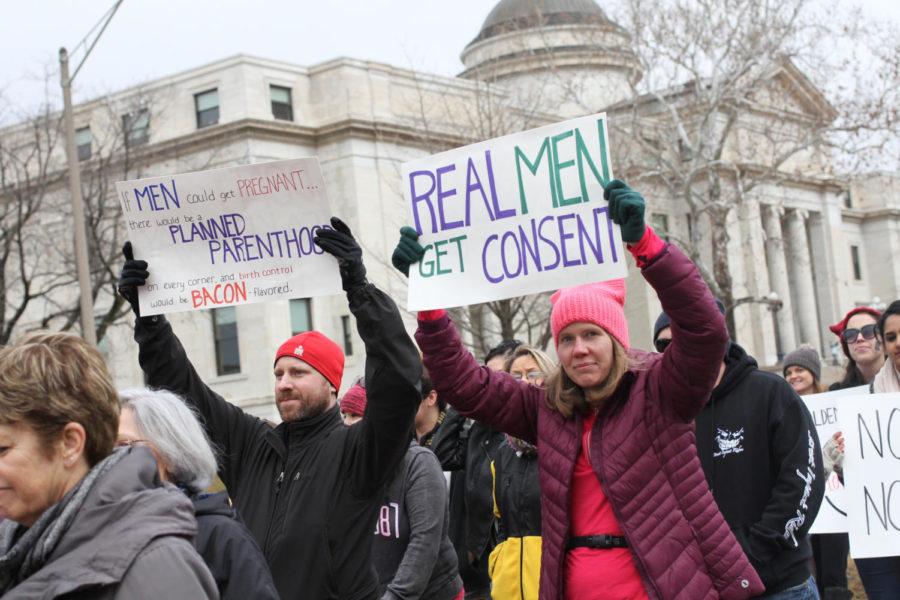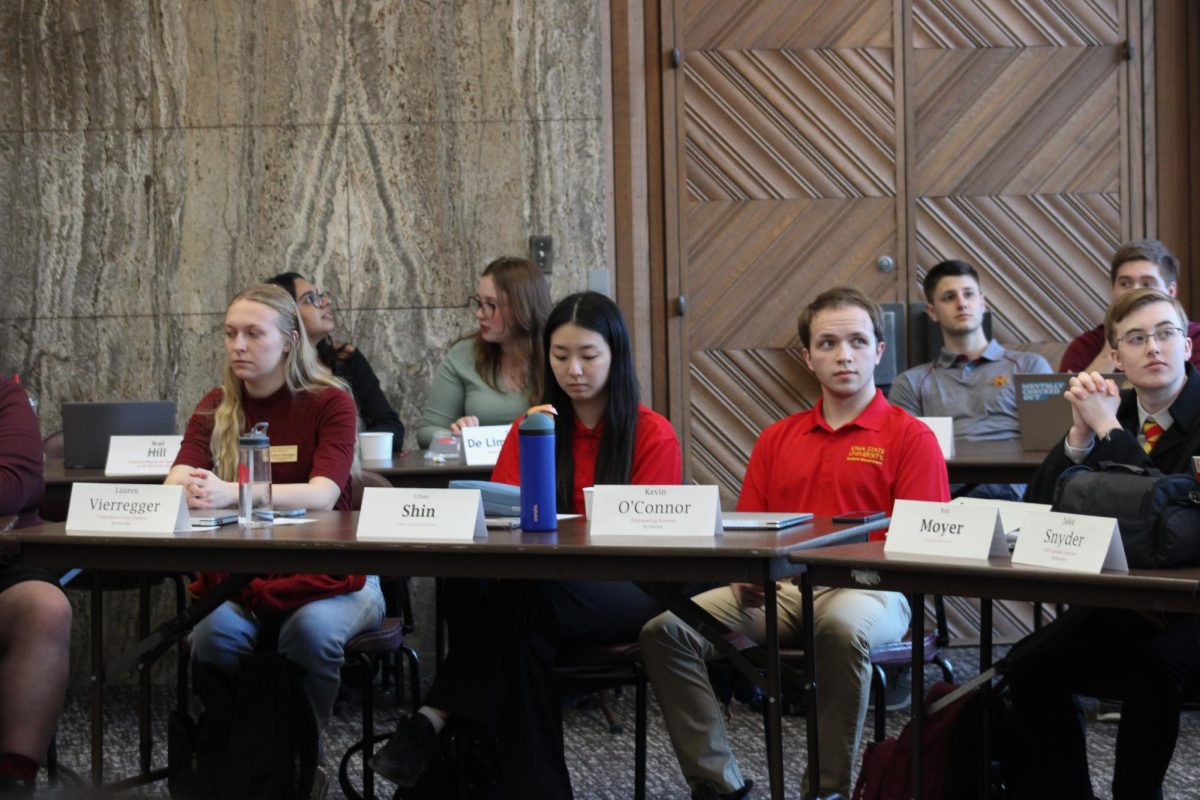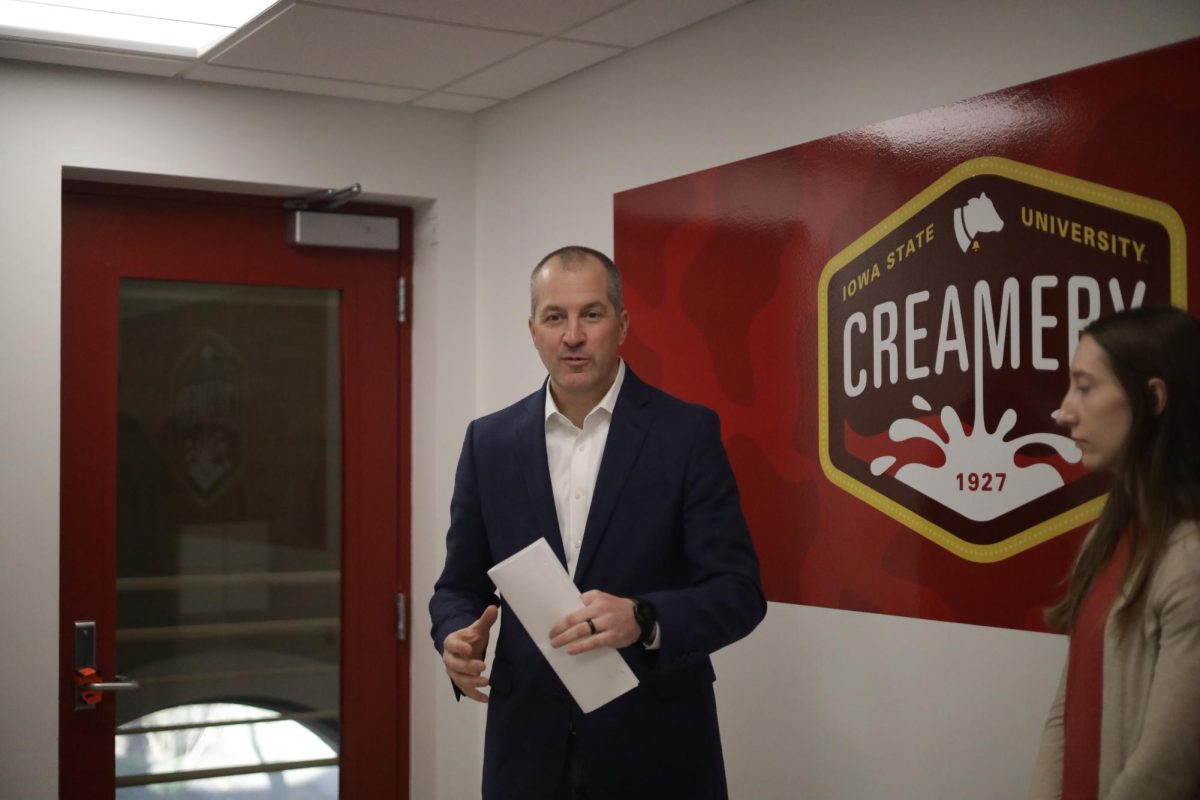Tyrrell: Believe in women
Protesters hold signs that read, “If men could get pregnant there would be a Planned Parenthood on every corner and birth control would be bacon flavored,” and, “real men get consent,” during the Women’s March in Des Moines on Saturday. Thousands of men and women circled the Iowa State Capitol to raise awareness for women’s issues.
October 7, 2018
Welcome to America, where the way we treat sexual assault survivors fluctuates between “You are so brave, and we welcome you with open arms” and “The President of the United States is going to mock you on national television.”
I’m not going to explain why what Donald Trump did at his rally last Tuesday was appalling and disgusting because I think we all know that it was. What I will explain, step by step, is why we need to believe Dr. Ford and why we should believe victims when they come forward with similar allegations.
To start, using statistics from the Bureau of Justice Statistics’ National Crime Victimization Survey, in 2016 only approximately 23 percent of rapes and sexual assaults were reported, which is an extremely low number in comparison with reporting rates for other crimes such as robbery. This will be an important statistic later, but putting that aside, data from the Los Angeles Police Department, FBI and several studies done over the past few decades have statistically shown that approximately 5 percent of of reported rape cases are false, the same approximation given to all other crimes.
You are no more likely to be falsely accused of rape than any other crime. So, let’s stop blowing those statistics out of the water, shall we?
Next, let’s look at the likelihood that a person falsely accused of rape will actually face consequences. According to one of the most detailed studies of reported sexual assaults, conducted by the British Home Office in 2005, out of 216 false rape accusations, only six led to an arrest and only two faced charges before the cases were found to be false.
Additionally, according to the National Registry of Exonerations, there have been only 52 cases of men being exonerated from rape charges since 1989, in comparison with 790 cases of exoneration for murder charges. In other words, many more murder claims have been found false than rape claims − over 15 times as many.
Men, here is my reassurance to you: if you don’t sexually assault someone, you will not be accused of sexual assault. And even if by a stroke of terrible luck you are falsely accused, the chance those accusations will result in consequences is lower than that of most other crimes.
Now, let’s go back to the first statistic, only about 40 percent of rapes get reported. If it wasn’t searingly obvious from this past week, our culture makes it very difficult to report rape and receive compassion and respect, let alone justice.
Report that a Stanford swimmer raped you behind a dumpster while you were unconscious and he might get three months. Report that a judge sexually assaulted you while you were in high school and he might get appointed to the Supreme Court, while our country’s highest leaders mock you on national television.
It’s a miracle even 23 percent of women come forward to report their assaults. And it’s completely unbelievable that someone would step forward in front of the whole country and take that burden of judgement, mockery and shame upon themselves just to lie about someone they have a grudge against.
Why are men like our president so incredibly concerned about being falsely accused? Why don’t they express the same fear that they will be falsely accused of murder? Perhaps because they know there are women out there who could make accusations against them, and they fear that if they don’t discredit women as a whole they will, for once in their lives, have to face the consequences of their actions.
But as this past weekend has proven, even that isn’t true. It seems that in America, consequences are only for women and people of color. Our Republican leaders don’t just refuse to believe in a women’s story of the most painful moment of her life; they refuse to care.







